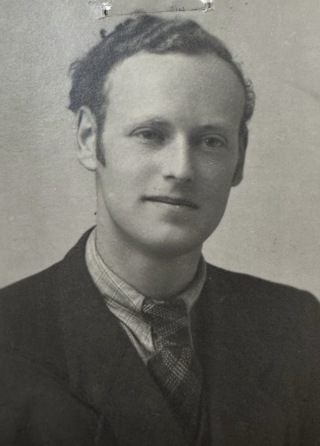Johann Gustav Philipp Cernoch

Personalia
Born:
Died:
Profession:
Persecution:
Imprisonment 15.07.1941 - 15.01.1943
Memberships
Curriculum Vitae
Johann Gustav Philipp Cernoch was born in Vienna as the legitimate son of the merchant Gustav Cernoch and Katharina, née Weihs. Some of his maternal grandparents were Jewish. After primary and secondary school, he attended a class at a commercial college. At the age of 13, in 1937, he joined the Austrian Communist Party (KPÖ) or a youth association.
[Note.: The membership card of the KPÖ from 1946 states 1941 as the year of admission, but Johann Cernoch states 1937 on his declaration of admission to the prisoners' association.]
Shortly before his 14th birthday, Johann Cernoch witnessed the demise of free and independent Austria with the invasion of the German Wehrmacht on March 12, 1938. With the occupation of Austria, German legislation was adopted and with it the 'Nuremberg Racial Laws', according to which Johann Cernoch was considered a 'Mitschling II. degree'.
After commercial school, Johann Cernoch worked as a metal caster. On July 4, 1941, as he sits on a park bench in front of the headquarters of the Danube Steamship Company (DDSG) with his acquaintance Stefanie Karger and her husband, he says, among other things, that he still has a pistol with which he would shoot Hermann Göring and that the reports from the Wehrmacht High Command broadcast on the radio are not true.
On 5 July 1941 and 15 July 1941, he criticized the occupation of Austria by the Third Reich, the National Socialist regime and Adolf Hitler personally to another acquaintance, Margarethe Jecklin. Also on July 15, 1941, he relativized the accusation to SS Untersturmführer Franz Mücksch that Russians were committing atrocities against German soldiers. Finally, he explained to the Obwehr representative in the DDSG that the United States would enter the war and that it would therefore develop to the disadvantage of the Third Reich.
On July 15, 1941, Johann Cernoch was arrested by the Gestapo. He was initially to be brought before the special court, but due to his young age he was brought before the juvenile court. In a trial on February 19, 1942, he was sentenced to 26 months for the offense of 'insidious attacks on the state and party and for protecting the party uniform'. He serves the sentence in Kaiserebersdorf juvenile prison. Due to the prison conditions, he falls ill both physically, his lungs and bladder, and mentally. Due to his state of health, Johann Cernoch was released early on January 15, 1943 and declared unfit for military service.
The time in prison left Johann Cernoch with such mental stress that he was diagnosed with schizophrenia on November 19, 1943 and admitted to the "Am Steinhof" sanatorium and nursing home. After his release, he worked as an unskilled laborer.
In May 1945, Johann Cernoch witnessed the liberation of Austria by the Allies. After the war, he initially rejoins the Communist Party, marries Friederike Kloibhofer, a conductor from Amstetten, and works as an administrative employee for a company. He later left the KPÖ and joined the ÖVP-Kameradschaft der politisch Verfolgten und Bekenner für Österreich.
Johann Cernoch died in Vienna at the age of 35.
Places
Residence:
Citations
Wiener Stadt- und Landesarchiv (WStLA)
Dokumentationsarchiv des österreichischen Widerstands (DÖW)
Matricula Online
